Images courtesy of Collins Dictionary, Oxford University Press, Merriam-Webster, Dictionary.com, Sawikaan, and Japan Times.
What’s your WOTY?
Five major dictionaries (Cambridge, Collins, Merriam-Webster, Oxford University Press, and Dictionary.com) have revealed their 2023 Word of the Year.

A visceral reminder, the word of the year captures the popular mood, cultural shifts, thoughts, and anxieties of a particular time, reflecting the story of our lives.
Words matter: WOTY 2023
Hallucinate
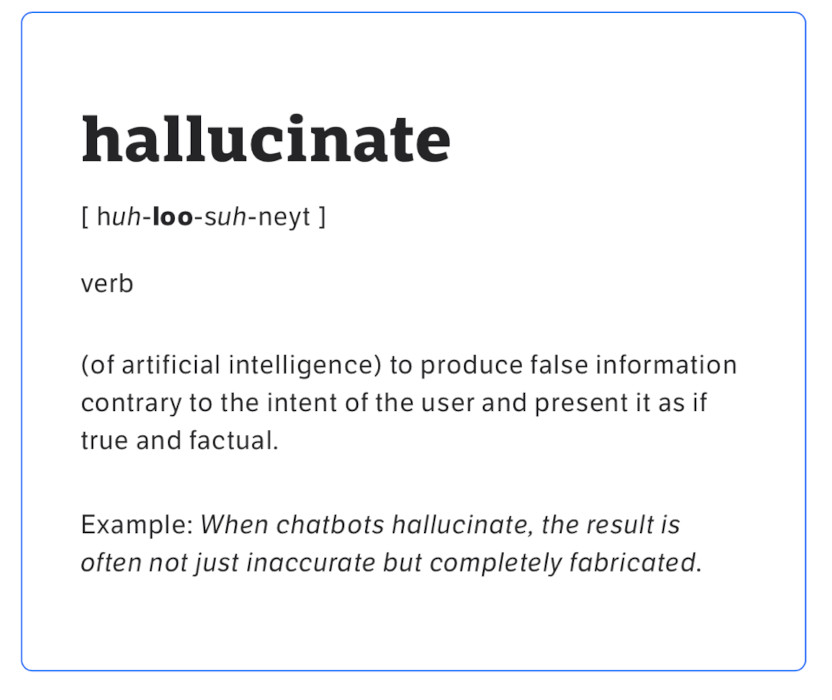
Cambridge Dictionary: hallucinate (verb), its common definition is “to seem to see, hear, feel or smell something that does not exist, usually because of a health condition or because you have taken a drug.”
In 2023, to hallucinate can mean something entirely different, courtesy of AI. Cambridge’s alternate definition is “when an artificial intelligence (a computer system that has some of the qualities that the human brain has, such as the ability to produce language in a way that seems human) hallucinates, it produces false information.”
Hallucinate is also Dictionary.com word of the year, with a slightly different definition, (of artificial intelligence) “to produce false information contrary to the intent of the user and present it as true and factual.”
AI
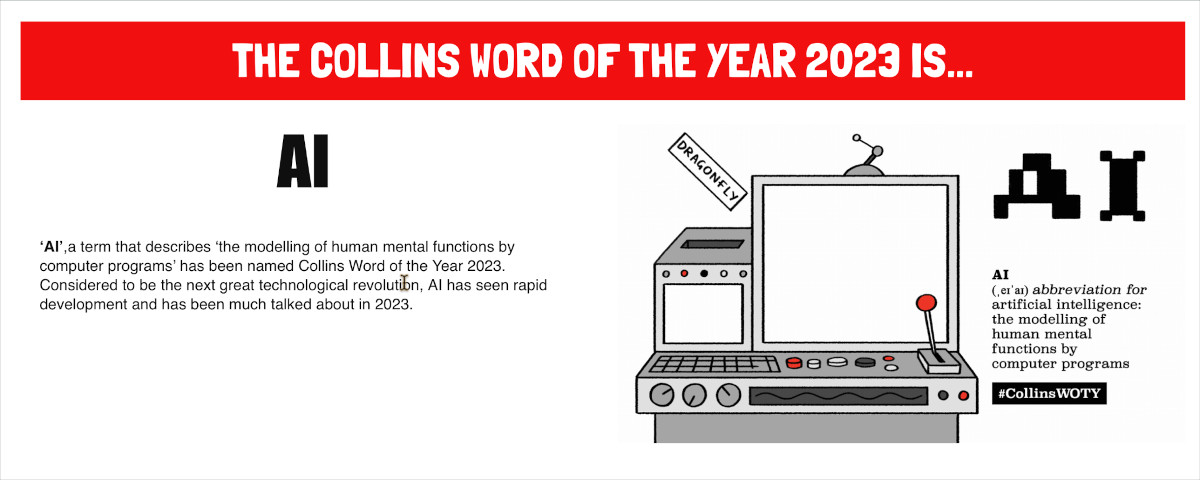
Collins Dictionary defines AI as “the modelling of human mental functions by computer programs.” AI has been touted as the next technological revolution, and with the release of ChatGPT in late 2022, global concerns have increased on its dangers with the proliferation of AI-generated texts that have been increasingly used in disinformation campaigns.
Visual artists and authors have been fighting against the use of AI infringing on their work. Authors such as John Grisham, George R.R. Martin, Jodi Picault, and Jonathan Franzen have joined a class action lawsuit against OpenAI, the maker of Dall-E and ChatGPT, saying that it used copyrighted work in training its systems to create human-like responses.
“Systemic theft on a massive scale,” is what these AI algorithms have been doing, the lawsuit claims.
Popular AI image generators have used thousands of images of child sexual abuse, as revealed recently by the Stanford Internet Observatory, a watch group based in Stanford University. More than 3200 images of suspected child sexual abuse have been found in the massive AI database LAION (Large Scale Artificial Intelligence Open Network), an index of online images and captions that have been used to train AI image makers.
Authentic
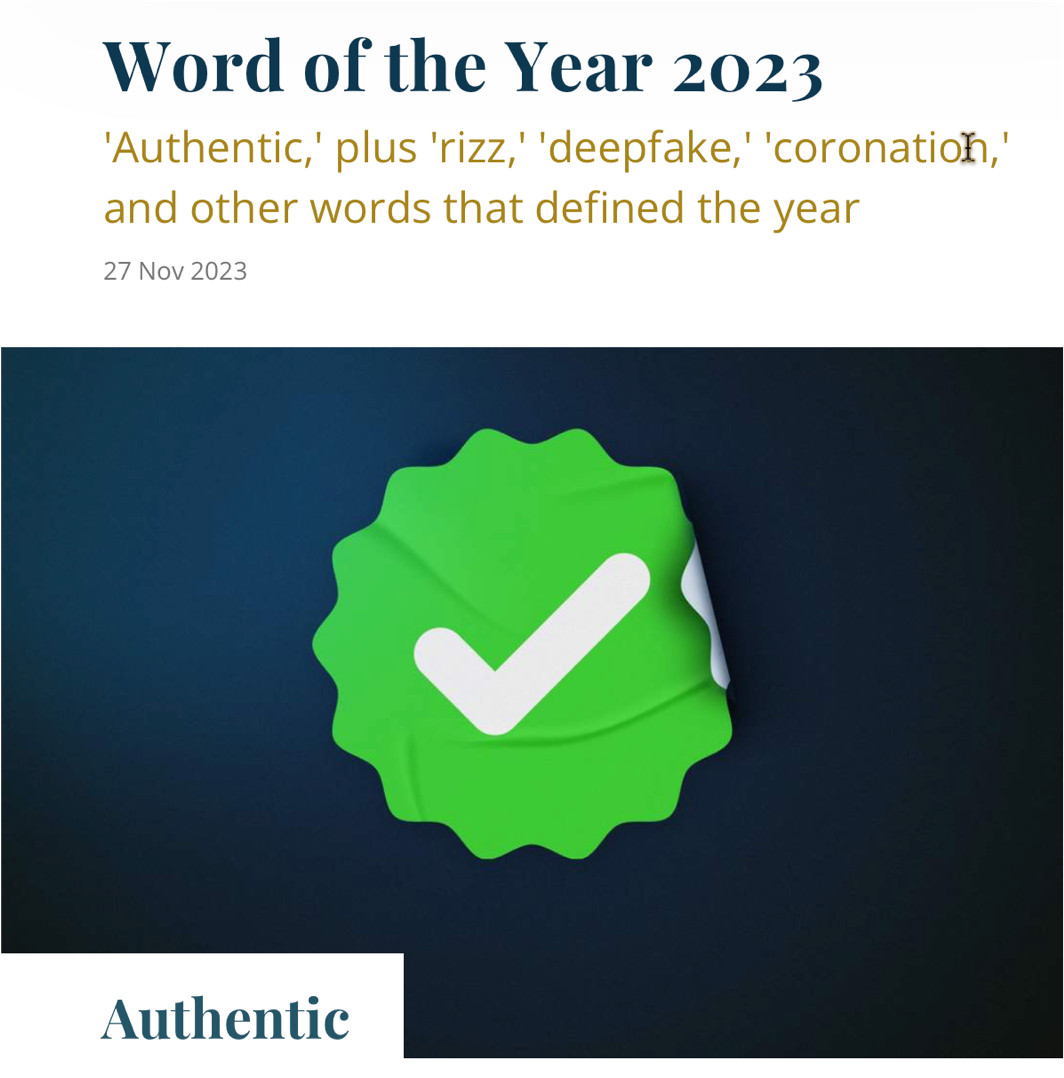
Merriam-Webster: authentic (adjective) 1. Not false or imitation; 2. True to one’s own personality, spirit or character.
In the context of AI unleashing its capacity for creating deepfake images and videos, fake voices fake profiles, and more, the call for being true to oneself has never been more pressing.
Above all, critical thinking is crucial in detecting falsehoods in social media and using credible sources of information.
Rizz
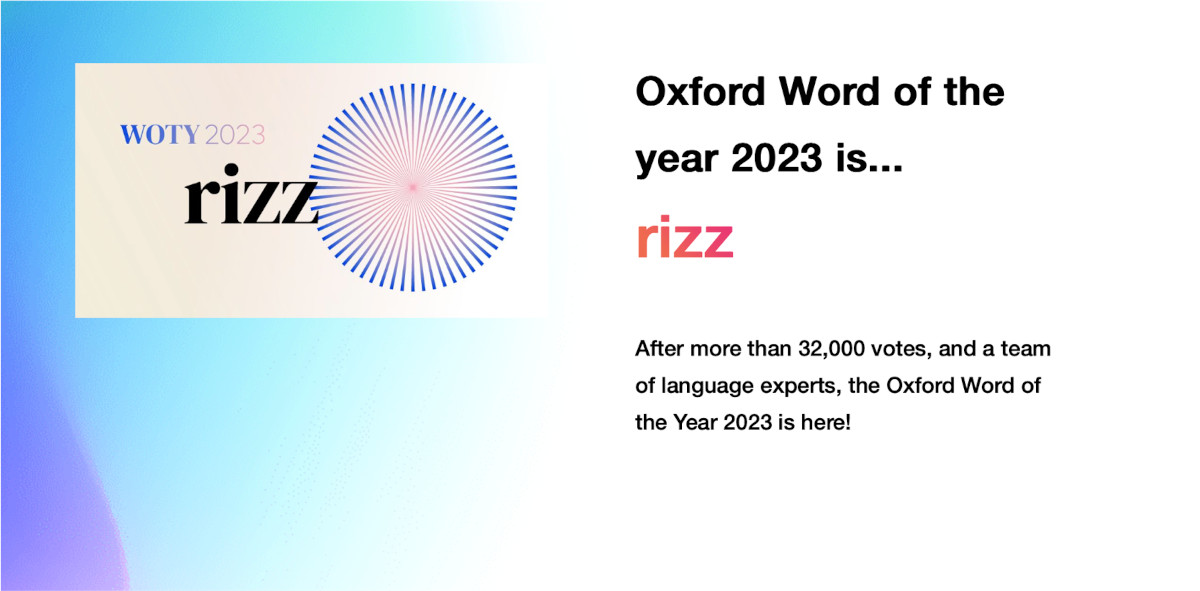
Oxford University Press: Rizz (noun) is defined as style, charm, or attractiveness and the ability to attract a romantic or sexual partner, an internet slang quite popular among Gen Z. A shortened form of “charisma,” it is also used as a verb, to rizz up that means to attract, seduce, or chat someone up.
Rizz won over Swiftie (a Taylor Swift fan), situationship, (an undefined romantic relationship), and de-influencing (the practice of discouraging consumers from buying specific products, or encouraging them to reduce their consumption of material goods).
Oxford notes that these recently created words or expressions reflect a certain period of time and also “having potential as a term of lasting cultural significance or providing a snapshot of social history.”
Last year, Oxford’s word was goblin mode (“self-indulgent, lazy, or greedy” behavior) right after the pandemic. In contrast in 2023, we are coming out of pandemic, opening ourselves to the world and to new experiences, and “finding confidence in who we are, notes Casper Gratwohl, president of Oxford Languages.
Salita ng taon
The Filipinas Institute of (FIT) has been issuing the country’s word of the year, but it has yet to release its Salita ng Taon for 2023. Its selection process is open to the public and anyone can submit a word choice accompanied by an explanation in its defense.
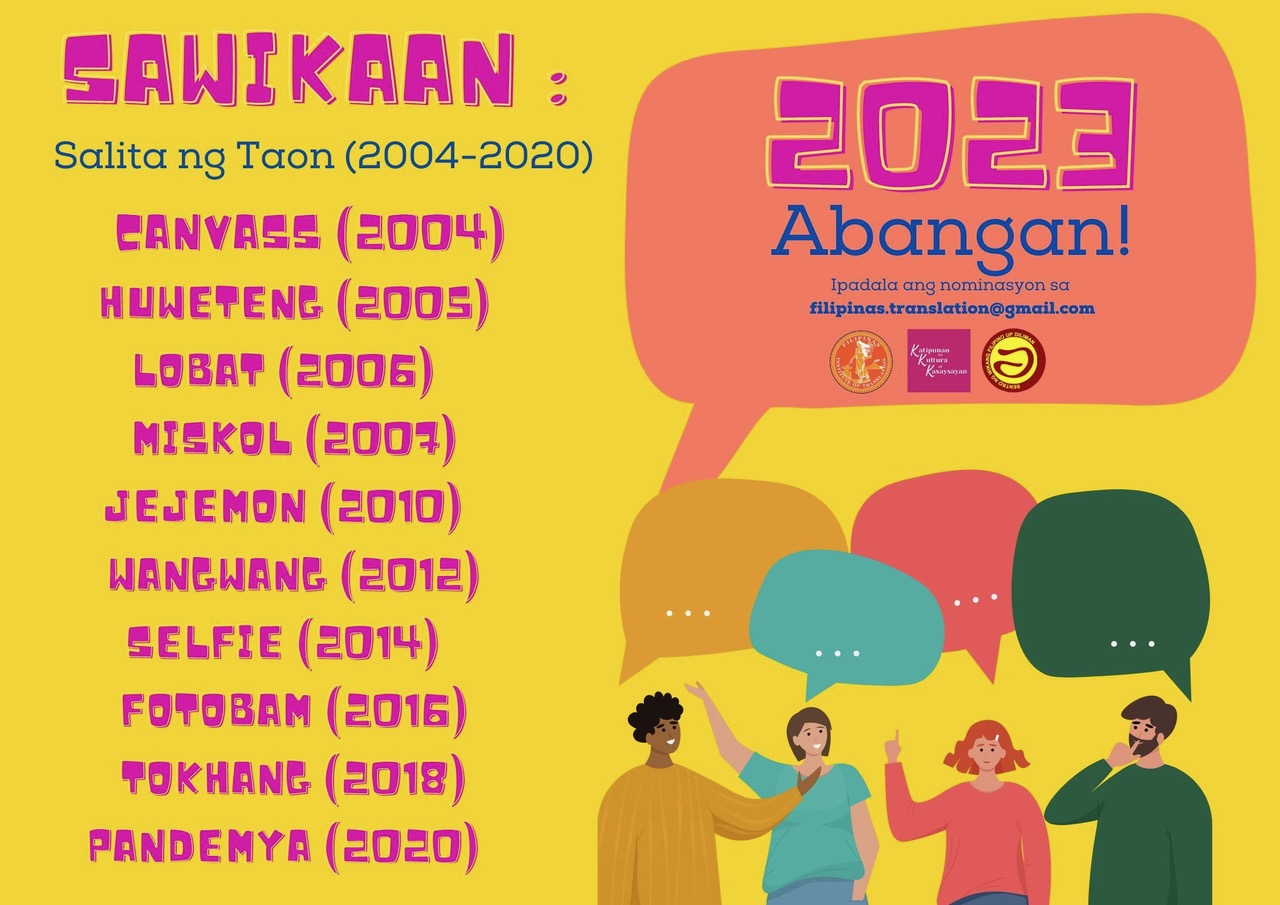
Words that are considered as Salita ng Taon may include newly invented or coined words; newly borrowed words from local or foreign languages; an old word that has acquired a new meaning; or an archaic or no longer used word that has been revived.
Pandemya (pandemic) is Salita ng Taon for 2020, by Sawikaan, referring to the global spread of the coronavirus disease or COVID-19. It also encapsulates the fears, worries, and uncertainties related to the virus that gripped the country. Pandemya was also chosen for Filipinos to take the threat of COVID-19 seriously, and to prepare for future pandemics that are bound to happen, like it or not.
“Social distancing” was the second choice, followed by “contact tracing.” Other words in the top ten list for 2020 included “ayuda,” “webinar,” “blended learning,” “testing,” “virus,” and “quarantine”— all words related to the global pandemic that claimed the lives of more than 66,000 Filipinos so far and 6.98 million worldwide, as of December 17, 2023.
No comments:
Post a Comment